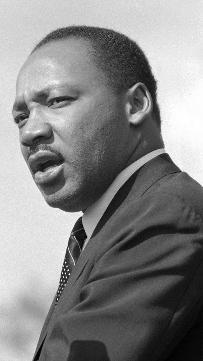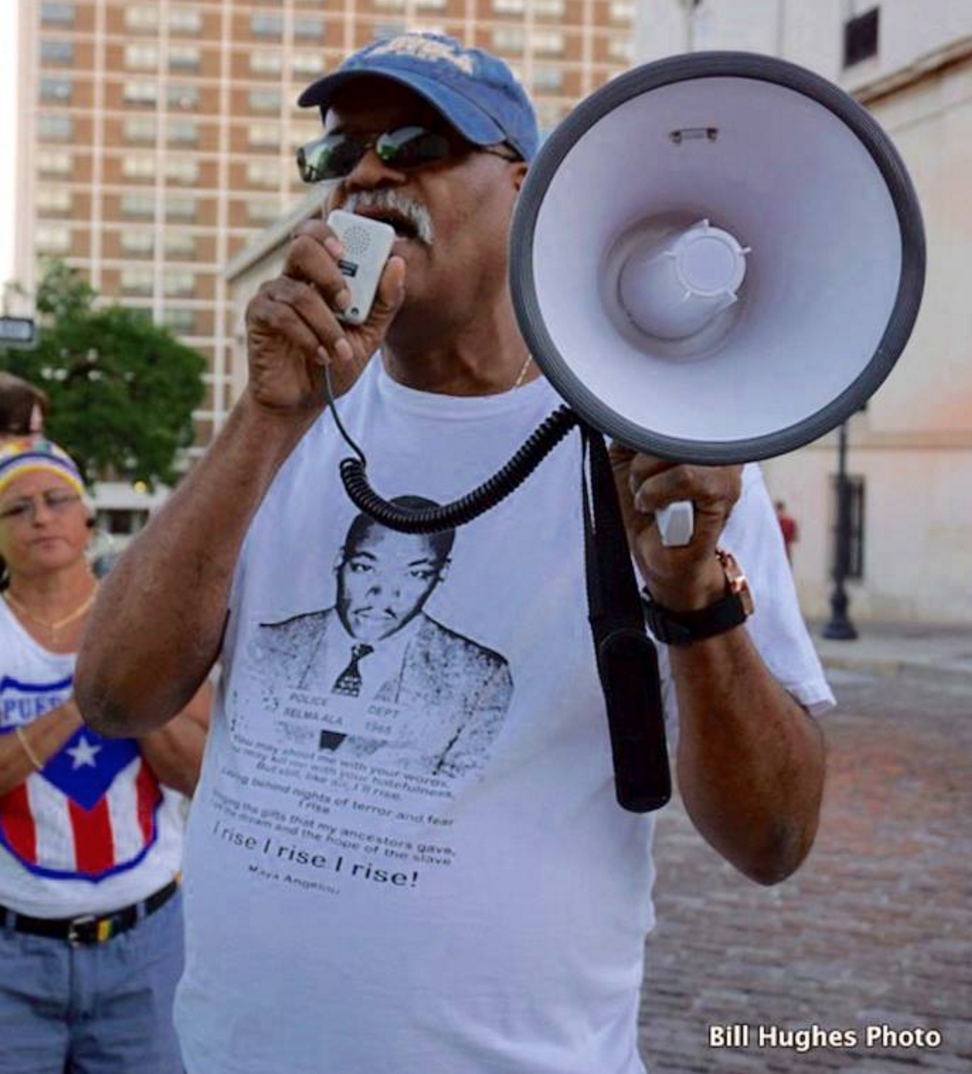An AFRO Commentary by: Ralph E. Moore Jr. Special to the AFRO
This year we will commemorate the 50th anniversary of Dr. Martin Luther King’s earth-shaking statements opposing the war in Vietnam. He called his remarks of April 4, 1967, “Beyond Vietnam: Time to Break the Silence.”

I’ve always been struck by the fact that Martin Luther King’s most radical, most far-reaching, most challenging speech was delivered exactly one year to the day before he was assassinated. I always found that fact both fascinating and frightening. But now, nearly fifty years after King delivered what was essentially an indictment of America’s prosecution of the war in Vietnam, his radical words then are no less true about modern day America. He noted the country’s aggressive military actions, its irresponsible spending, its misplaced priorities and its essential hypocrisy—that is, its capacity to live with contradictions.
In his 1967 speech at Riverside Church in New York City, Martin clearly departed from the uplifting tone of his iconic 1963 “I Have a Dream” speech, in which he dreamed of a better, more racially harmonious America as he stood before 250,000 people at the Lincoln Memorial. His point of view sharpened as he looked right into the face of America, seeing its uglier countenance. In his speech at Riverside, King called for a “true revolution of values.” Again, this was a rigorous speech: America needs radical change, he said—not mere reform, not gentle tweaking, not tiny steps, but leaps of change. He said on that day in April 1967 that it is time to end the violence of war and the violence of poverty. And bear in mind something that Mahatma Gandhi—one of King’s heroes—once said, “Poverty is the worst form of violence.” I am sure the poverty created through the bankruptcy of military spending is the most insane type of violence in the minds of both of these men.
The War on Poverty was launched by President Lyndon B. Johnson in his January 1964 State of the Union address. In the more than fifty years since the campaign was announced, $22 trillion has been spent on anti-poverty programs. Imagine if the government had just given the money to the poor folks directly. But Head Start, Legal Aid and Medicare and Medicaid, and food and nutrition programs have been lifesavers for the poor. Soon after Johnson launched his war on poverty, he escalated U.S. involvement in the war in Vietnam by seeking and getting Congress to pass the Gulf of Tonkin resolution in August 1964. The resolution authorized LBJ to “take any measures he believed were necessary to retaliate and to promote the maintenance of peace and security in southeast Asia.” The nation’s time, attention and treasure (funding) was shifted from fighting poverty at home to fighting the Viet Cong overseas. King understood the shift. It moved him after he realized poverty was losing the nation’s attention, thereby hurting folks, especially in the inner-cities, even as the war in Vietnam was killing and maiming American and Vietnamese citizens, disproportionately those from the inner-cities and Asian villages. His increasing awareness of that triple whammy of death, injury and mass poverty seems to have been the biggest influence on King to speak out. He saw the racist nature of the war. He would be greatly saddened to see open racism is resurging in America today.
Speaking of the war in Vietnam, raging at that time, he said, “The war in Vietnam is but a symptom of a far deeper malady within the American spirit and if we ignore this sobering reality, we will find ourselves organizing ‘clergy and laymen concerned’ committees for the next generation. They will be concerned about Guatemala-Guatamala and Peru. They will be concerned about Thailand and Cambodia. They will be concerned about Mozambique and South Africa. We will be marching for these and a dozen other names and attending rallies without end, unless there is a significant change in American life and policy.”
Clearly in this passage, we hear King looking at the whole world, taking a global view. An important feature of his worldview is his commitment to action, including marches and his call for big change. But more interestingly in this speech, King talks about being moved to speak out by challenges he received on the streets of the American inner cities.
In this speech, MLK said the triple threats to American life are racism, militarism and poverty. After fighting for years for voting rights for tax-paying American citizens of color; after touring southern towns and northern cities and seeing hunger, poverty and dilapidation staring him in the face; and after seeing the impact of the Vietnam War on returning veterans and their families, King connected the dots and was moved to speak out.
Incidentally, around the time of his Riverside speech, both Robert Kennedy and Muhammad Ali were also beginning to express public opposition to the war in Vietnam. Before the speech, King met privately with Muhammad Ali, who was in the process of refusing to be inducted into the draft to fight the Viet Cong. Perhaps Robert Kennedy’s increasing public opposition to the war inspired King to quote Kennedy’s brother in his own opposition speech: “It is with such activity in mind that the words of the late John F. Kennedy come back to haunt us. Five years ago he said, ‘Those who make peaceful revolution impossible will make violent revolution inevitable.’” Or as Victor Frankel wrote in his book, “Man’s Search for Meaning,” an “abnormal reaction to an abnormal situation is normal behavior.”
“If America’s soul becomes totally poisoned, part of the autopsy must read: Vietnam”, King said.
King called for a true revolution of values in this wonderfully courageous Riverside Church speech. His revolution of values would cause us to question the policies and practices of the past. His revolution will cause us to take a hard look at “the glaring contrast of poverty and wealth.” His revolution of values would call for the elimination of war as the way of settling differences. King says simply, “War is not the answer.” He calls for a vastly different way of looking at things, a different way of settling things and a better way of spreading out the world’s resources.
Most importantly and clearly, King made the connection that, “A nation that continues year and year to spend more money on military defense than on programs of social uplift is approaching spiritual death.”
King’s comments in his searing April 4, 1967 speech are just as relevant today as they were then. Our spending priorities are still askew, we are still too committed to what Columbia University’s Seymour Melman once called “The Permanent War Economy,” and we are perhaps getting more inclined to approve increased defense spending. And we still have much racism to eliminate—against African Americans, Jews, Moslems and Hispanics.
The parallels to then and now are quite striking: as the U.S. prioritizes defense spending increasingly it is at the expense of domestic spending. Now, more than ever, we need Martin Luther King’s voice: it’s moral tone, it’s clear direction and its challenging purpose. We must be bold if we want things to be better. We will not be able to bring Dr. Martin Luther King back. We all must become Martin Luther King!
Ralph E. Moore Jr. is a Baltimore resident. He has a long history of supporting many activist causes for improving the city’s Black community and promoting opportunities for inner city youth. He is co-founder of By Peaceful Means.
